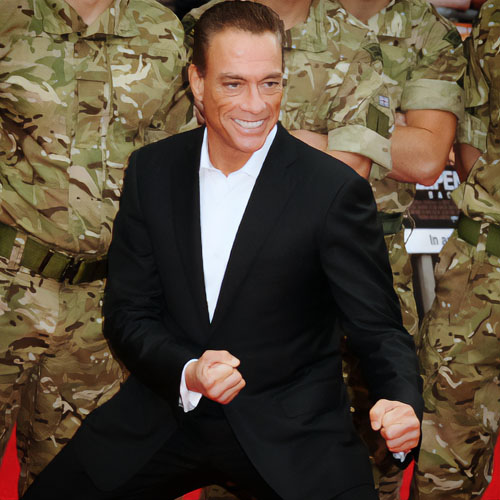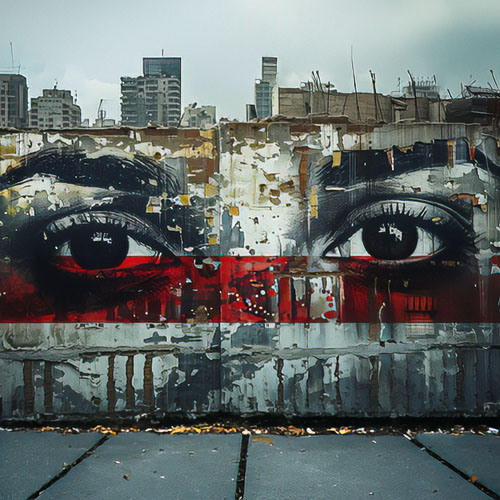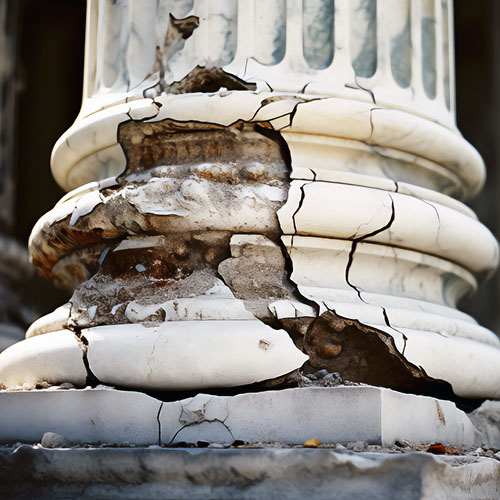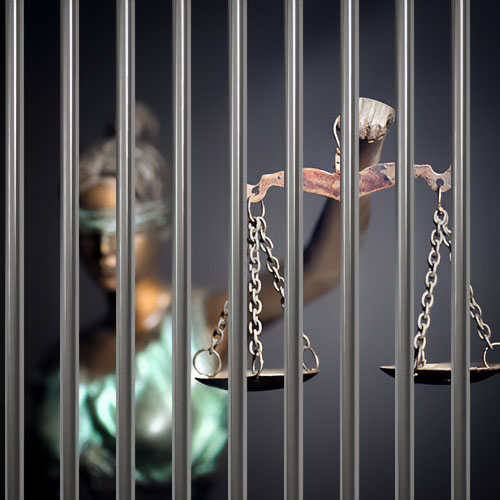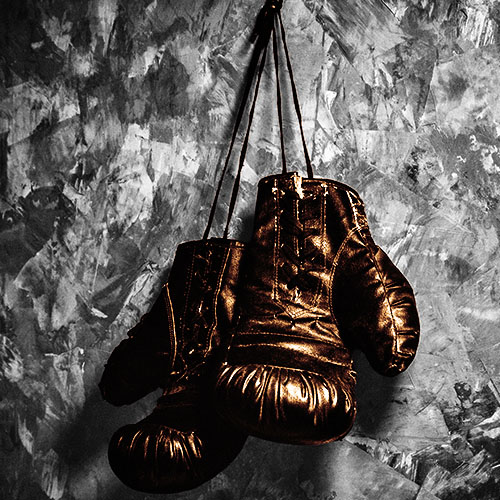The government assures us we’re safer today then we were on September 10, 2001. Not sure, say these “Paul Revere whistle-blowers,” who have extensive backgrounds in law enforcement and national security. In the words of one expert, “Other than changing the window dressing and creating a false sense of security by inconveniencing the public and cancelling constitutional rights, the bureaucracies have, by and large refused to budge.”
It Can Happen Again … Thus Spake Whistle-Blower
Could it happen again? When? Where? How? Americans have been asking these questions since 9/11.
The government assures us we’re safer today than we were on September 10, 2001. But is this true? The people Penthouse spoke to for this article think not.
Bogdan Dzakovic knows about airport security. As a 15-year veteran of the Federal Aviation Administration’s Security Division, he was a “Red Team” member responsible for testing airport security in the years before 9/11. He now works for the Transportation Security Administration, the agency Congress created to take over airport security from the FAA When asked about the possibility of another 9/11, he’s quick to answer.
“It could be done today. The TSA has adopted the same mindset of the FAA, which is that the illusion [of security] is more important than the reality.”
Dzakovic is a whistle-blower. He began complaining to his bosses and others about dangerous vulnerabilities in airport security as early as 1997. For this, he was ignored and retaliated against.
Unlike Coleen Rowley, the FBI staff attorney who blew the whistle on Bureau mistakes prior to 9/11, Dzakovic has not made the cover of Time. He has not become a household name — something that might shield him from retaliation.
Whistle-blowers have been around for a long time. Many, like Ernie Fitzgerald in the 1970s, have exposed government waste and corruption. But Dzakovic is of a new breed of whistle-blower. Such people have spoken out about homeland insecurity since 9/11 — and the government is not happy about it. The terror threat is still real, as manifested in the ever-fluctuating color-code alerts and the government’s claims of its doing everything in its power to protect us. Congress has passed new laws. New antiterror agencies have been born. Billions of tax dollars are being spent. All these steps are being taken to address weaknesses in homeland security. But are they making us safer?
The new whistle-blowers say no.
“These national-security professionals are increasingly frustrated that, other than changing the window dressing and creating a false sense of security by inconveniencing the public and canceling constitutional rights, the bureaucracies have, by and large, refused to budge,” says Tom Devine, legal director of the Government Accountability Project, an organization that has been aiding whistle-blowers since 1977.
In the months after 9/11, so many of these new whistle-blowers came to Devine for help that he coined a term: Paul Revere whistle-blowers. “They had been warning for years that there were credible threats from terrorists and [that] we weren’t prepared,” Devine says. “Their warnings fell on deaf ears.”
Penthouse interviewed four of these national-security whistle-blowers. All have impressive backgrounds in law enforcement and security. And they all believe that we are still vulnerable.
Bogdan Dzakovic, 49, started his career at the FAA as an air marshal. By 1995 he was a Red Team leader. As the FAA’s “fake terrorist,” it was his job to try to sneak stuff onto planes. In 1996 his team smuggled fake bombs onto 31 aircraft out of 31 attempts in Frankfurt, Germany, over a six-month period. In 1998 at National Airport in Washington, D.C., he breached security 85 percent of the time. At most domestic airports, he could smuggle bombs and guns through checkpoints anywhere from 85 percent to 97 percent of the time.
“One of the misnomers about 9/11 that the government puts out is that these were very sophisticated terrorists,” Dzakovic says. “A group of high school kids could have brought the aviation industry to its knees as a class project because it was so easy to do. We couldn’t even thwart a high school class, much less terrorists.”
Dzakovic reported his findings up through the FAA chain of command. And he discovered what whistle-blowers often find: Nothing happened. Then he sounded the alarm to others. He went to the inspector general of the FAA and to the General Accounting Office (the investigative arm of Congress). Nothing happened. He contacted congressional staffs. Nothing happened. Exasperated, he sent a 13-page memo to FAA administrator Jane Garvey in 1998. He never heard back from her.
He says he was ordered by his superiors not to make written reports and to warn airports when his team was coming. “All we were doing as far as the agency was concerned was collecting data,” he says. “Absolutely nothing was done to correct the problem.”
Dzakovic saw the danger, and feels that the 9/11 attacks could have been prevented. His Red Team had been created as a response to the bombing of Pan Am flight 103 over Scotland in 1988. In the ensuing years, there were numerous indications that American aviation was a prime terrorist target.
“Some of the other people I worked with on the Red Team were very conscientious,” Dzakovic says. “And I remember having conversations with them as we were sitting in the passenger terminals watching one of our bombs get put on a plane, looking at all these innocent people. How could we live with ourselves if the plane blew up in reality instead of in one of our games?”
In the weeks after 9/11, Dzakovic filed a formal whistle-blower complaint. But this time he went public with it and could not be ignored. After a year of study by the inspector general, the U.S. Office of Special Counsel reported in March 2003 that “the Red Team was grossly mismanaged and that the result was the creation of a substantial and specific danger to public safety.”
This was hardly vindication for Dzakovic. The bureaucracy retaliated against him. Now, with the TSA, he has been given meaningless nonsecurity-related jobs since 9/11 — like punching holes in file folders and answering telephones at Dulles Airport during the graveyard shift. He doesn’t even know his job title anymore. As this issue went to press, he told Penthouse, “Right now the Office of Special Counsel is serving as a mediator between myself and TSA to try and place me in a job that is commensurate with my background, experience, and education.”
His career in ruins, he still blows the whistle every chance he gets. He has watched the same FAA managers get absorbed into the TSA. Nobody was held responsible for the security breakdowns that led to 9/11. The TSA, he claims, is exhibiting the same symptoms that the FAA did before the disaster. “The TSA is just a big black hole for taking taxpayer money,” he says.
The TSA reported in March 2003 that it had seized 4.8 million contraband items in the agency’s first year of existence. Dzakovic is unimpressed. “It’s kind of like a body count in Vietnam,” he says. “What they need to address is how many of those weapons were carried by people intending to commit a violent act on an airplane. And I would guarantee it is zero. The vast majority of those weapons were put in bags and people forgot they were there.”
Both the FAA and TSA were quick to respond to Dzakovic’s allegations. The FAA claims it knew about the security vulnerabilities and was working to fix them on 9/11. “If you look at the Office of Inspector General’s report, they did not find any truth in any of his allegations,” says Rebecca Trexler, a spokeswoman for the FAA. “What they found were general vulnerabilities in the security system, and that was not news to us.” The Special Counsel wrote a letter to President Bush in March 2003 that said, “The OIG report substantiates the crux of Mr. Dzakovic’s allegation…” When asked about this, Trexler responded, “I don’t know what [the Special Counsel] means by that.”
“Aviation security is better today than it ever has been in the history of aviation security in the U.S.,” says TSA spokesman Brian Turmail. He points out that only five percent of bags were screened for explosives before 9/11, compared to 100 percent today. Multiple layers of security now exist. Screeners are now trained and hired by the federal government. And of those 4.8 million seized items, there were more than 1.2 million knives, 1,000 guns, and 38,000 box cutters.
Turmail says Dzakovic is actually on the TSA crises-response team.
“Crises-response team?” Dzakovic says. “Never heard of it. This must be the new name for being a glorified telephone operator.”
Darlene Fitzgerald-Catalan, 42, sees the next threat coming not from the sky but from our rails and borders. For 11 years she worked as a special agent for the U.S. Customs Service. Before that, she spent three years as an officer in the U.S. Army Military Police. She was trained in counterterrorism and served as a captain in the counterterrorism taskforce reserves.
While with customs in Riverside, California, Fitzgerald-Catalan was lead agent in an operation that targeted tanker cars used to smuggle drugs from Mexico. She received a tip that the Arellano-Felix drug cartel was using a rail yard in Guadalajara to load drugs on rail cars. These cars often race across the border in caravans of hundreds.
“Timothy McVeigh used a little less than a ton of chemicals, and he blew up the whole Federal Building,” she says. “I can put 20 times that in one of these tanker cars, take a phony ID and cash, and load up hundreds of these cars at a time. Via the Internet, I can move them remotely and put them within a mile of a hundred different U.S. landmarks. Then I can put them under pressure. What happens to any explosive when you put it under pressure? Remotely activate it, and no one will ever know who did it.”
“If 30 tons of cocaine gets through every month, then guess what else can get in? Terrorists know how these loads are getting across.”
“One of the things that makes [tanker cars] so difficult to search is that a lot of people see these cars and think oil. And they do carry oil, but they also carry very hazardous materials. [To search] one car can cost up to $14,000. It’s an incredibly efficient smuggling device.”
In April 1998 Fitzgerald-Catalan got a tip, seized one car, searched it, and found 8,000 tons of marijuana and 34 kilos of cocaine. It was a major bust. The acting commissioner of customs in Washington called to congratulate her.
A few months later she was tipped off to five other suspicious cars coming across from the same Mexican rail yard. The front company that had sent the original car had also leased these. She had the five cars stopped and applied a “customs hold” that prevented them from entering the United States. The manifest said that the cars were empty, yet they were, on average, nine tons overweight each.
Things then took a bizarre twist. Fitzgerald-Catalan recounts in a statement submitted to the Senate that she was ordered to stay out of the rail yard and do nothing about the cars. A few days later she got a call from the railroad company asking where those cars were. The cars were gone. Poof. Nobody is allowed to override a customs hold put on by a special agent. But it happened.
Soon Fitzgerald-Catalan was being subjected, she claims, to all sorts of harassment and retaliation. She even received an anonymous letter telling her to quit, or else.
She continued to try to work the rail surveillance. Keeping tabs on the front company in Mexico, she estimated that maybe 100 suspicious railroad cars were allowed to pass into the United States unmolested over the next several months.
Suspecting that she had uncovered a major scandal in customs, she blew the whistle, notifying the Office of Special Counsel, the inspector general, and the FBI. And, as with Dzakovic, nothing happened.
Fearing for her life, she finally resigned in October 1999. But the harassment didn’t stop. “I lost my career. I lost everything,” she says. Unable to find work in law enforcement, she went from making almost $100,000 a year to a $9-an-hour job. She lost her home and her marriage ended.
After 9/11, Darlene Fitzgerald-Catalan questioned the government’s assertion that it had tightened the borders. If the borders were secure, where were the huge drug busts? Why wasn’t the street price of dope skyrocketing?
“If 30 tons of cocaine gets through every month, then guess what else can get in here?” she says. “The DEA has confirmed that terrorist organizations are already in bed with the [ drug] cartels. These people are in business to make money. When somebody comes to the cartels, the cartels don’t say, ‘Well, we need to verify [whether or not] you’re a terrorist first.’ And the terrorists know how these loads are getting across.”
“I absolutely agree that we took appropriate action in Afghanistan and with Saddam Hussein,” she says. “I applaud the government for that. But to sit back and think we’re safe now … You’d better watch out, because these people are pissed and they are going to come after us.”
Fitzgerald-Catalan has a whistle-blower lawsuit pending against the government, claiming she was forced out of her job, and asking for the salary she would have made if she still had it. For that reason, Bill Anthony, a spokesman for the U.S. Customs and Border service, refused to discuss her drug-corruption charges. But he did take issue with her security allegations.
“This is no longer the pre-9/11 border in terms of technology,” Anthony says. “They [the whistle-blowers] may be out of the loop.” He points to things like the new vehicle and cargo inspection stations, where giant gamma-ray machines look inside containers. There are also “nuclear portal” machines at certain borders that scan for radioactive materials. Every inspector now carries a radiation detector. The United States also participates in the Customs-Trade Partnership Against Terrorism, which allows containers to be searched overseas before they ever get here.
As for the terrorist-drug cartel link, Bill Anthony says, “Are they working together? I don’t know. But you have to ask why the drug smugglers would assist in blowing up their customers.” He said that authorities are aware of only one attempt by terrorists to sneak weapons across the border, which was stopped in Washington State at the time of the millennium plot to bomb Los Angeles Airport.
Sandy Nunn, 43, was a special customs agent for 12 years. She’s been best friends with Darlene Fitzgerald-Catalan since 1988, and came to her friend’s defense. Because of that, Nunn suffered the same retaliation, and quit just two weeks before Fitzgerald-Catalan, in 1999.
Her efforts were not just directed against drug smuggling. She was an expert in arms and technology transfers and money laundering. In 1991 she was the lead agent in what became the second-largest money-laundering case in U.S. history, involving $150 million in cash. In Serbia in 1994 she headed the investigations unit that monitored U.N. sanctions. She received 22 awards and plaques during her time with the service.
“Protecting the borders is such a joke,” Nunn says. “I’ve seen authorities, Tom Ridge and others, stand up and talk about protecting the borders: ‘Oh, we’re doing this and that.’ But you know what? Anybody who has been on the inside and understands how smuggling works understands how easy it is to smuggle through the seaports and other places, [just as] Darlene encountered with the railways.”
More than 7.5 million containers enter the United States by sea each year. Forty-three percent come through Long Beach, California, the largest port in America. In April 1997, Nunn did a survey and found that of 100 inspectors at Long Beach, only about 30 were assigned to do extensive inspections. “To do one inspection of one container can take you most of the day just to pull out all the merchandise and pack it all back in,” she says. She wrote a report of her findings and passed it up the chain of command, and that was the end of that.
But that wasn’t what destroyed her career. It was her involvement with Fitzgerald-Catalan’s rail-tanker case that got Nunn in big trouble.
“I started doing a lot of research on outstanding issues … both in our office as well as at the Mexican border,” she says. “And I started looking at other investigations that had been thwarted over the years. I started seeing a pattern. I remember meeting Darlene for lunch one day, and I laid it all out on the napkin.”
She joined forces with Fitzgerald-Catalan, and they began searching for someone in the government to give this information to. From that point on, Nunn’s life was made a living hell. “I can remember sleeping with a gun under my pillow because I just honestly didn’t know who we were dealing with.”
In May 1999 the two women went public with their charges. Nunn quit that September. Despite her experience and awards, she could not find a job in law enforcement. She went from making $75,000 a year and overtime to $5,000, and had to move back in with her mother. She now has her own business selling jewelry out of her house. Nunn is a co-plaintiff with Fitzgerald-Catalan in the whistle-blower lawsuit that, at this writing, is moving through the courts.
Nunn keeps up with what is happening in her old job. “In my professional opinion,” she says, “I do not see adequate measures being taken to protect the borders. It’s just a smoke-and-mirror type of thing. You have so much dysfunctional management in place with an agency that is dysfunctional. What you’ve got now is basically a bunch of agencies lumped into Homeland Security with just more bureaucracy, more cronyism, and a larger agency just full of dysfunctional people.”
Bill Anthony of U.S. Customs disagrees. “The government is at a disadvantage when it comes to whistle-blowers,” he says. “The government is a giant that anybody can bang away at. There are legitimate and illegitimate whistle-blowers. It’s easy to say that the border is porous and stuff gets through, because you can’t prove it’s not getting through. What you should not do is think that the government is not aware of the dangers, and not addressing them. We address them as soon as we identify them.” Anthony notes that gamma-ray machines today screen 10.5 percent of all sea cargo containers coming into the country.
Says Nunn, “It scares me, because I know in my heart that we’re going to get hit again. We’re not safe. Smuggling dope or money on a container is so easy, let alone a little vial of anthrax or bubonic plague. You see night footage of illegal aliens crossing the southern border with backpacks. You could have a little suitcase bomb in there.”
Imagine eight million people living within a 50-mile radius of 880 pounds of plutonium, the stuff used to build nuclear bombs. Some of that plutonium is in oxide or powder form, making it a perfect dirty bomb. This is exactly the situation in the San Francisco Bay area, where the Lawrence Livermore National Lab sits just 40 miles east of Oakland.
Livermore is where the United States does research on its own weapons of mass destruction. It is one of three such Department of Energy labs. The DOE has a contract with the University of California to operate Livermore and the Los Alamos nuclear lab in New Mexico.
If there were ever an attractive terrorist target in America, Livermore is it. And that is what worries Mathew Zipoli. Zipoli, 28, has been a security guard at Livermore since 1999, except for a 16-month period during which he says he was unjustly fired for speaking out about the lab’s safety and security deficiencies. He holds a top-secret “Q” clearance.
Before joining the lab, he spent four years in the Air Force, where he was part of an elite Emergency Service Team, the Air Force version of a SWAT unit. He protected Priority A assets-nuclear bombs, in other words. He received two Air Force achievement medals.
“I know we’ re going to get hit again. Illegal aliens cross the southern border with backpacks. You could have a little suitcase bomb in there.”
Here is what Zipoli has to say about the possibility of a terrorist attack at Livermore: “It’s obvious that we cannot handle the threat. Security is basically on the backburner, and it’s all about the image of the University of California. They put us in the public view as eye candy. Just because you have a lot of fences, a lot of black uniforms, and a lot of nice guns does not mean you have the proper force to stop a threat. But the public sure feels good about it.”
In a whistle-blower complaint filed with the U.S. Labor Department, Zipoli insists that the 150-man Livermore security force does not receive the proper training or equipment — for instance, respirators with which to enter areas that, in an emergency, would likely be flooded with argon gas. (The gas would displace oxygen, and the officers would be unable to breathe.) Emergency drills that are supposed to be done monthly take place once a year, Zipoli says. And despite a report issued by the Government Accountability Project that claims nuclear facilities, including Livermore, fail even mock security tests more than half the time, officers are not given the first-responder benefits that firemen receive. The result is poor morale: recipe for a security disaster. “Over a three-year period,” Zipoli says, “we have a 75 percent attrition rate among officers. The [training] academy I went through in 1999 had 11 officers. I am the only one left.”
In the complaint, Zipoli alleges serious security breaches at Livermore in recent years. In February 2000 a bomb threat was called in against the plutonium-processing facility. The site was not evacuated. Since the officers don’t have the training to deal with a bomb, they are supposed to call in the Alameda County bomb squad. The call was never made. Instead, management ordered officers to go in and search. When they refused, the managers did it themselves. “They were playing craps,” Zipoli says. “They went to Vegas and played craps on the lives and economic vitality of the community. What was supposed to be an official bomb response was a public-relations response.”
Two other charges contained in Zipoli’s complaint:
In July 1998 an officer detained a Livermore employee — a Chinese national — attempting to enter the lab with a classified laptop computer, using another employee’s property pass for that computer. Management ordered the officer to let the man go. It was revealed last year that the management official in charge of Livermore’s counter-espionage program had had a sexual relationship with a female Chinese spy and was forced to quit his job.
In the spring of 2003, an electronic access badge was lost for six weeks before management learned of it. A set of keys to the lab perimeter and office doors was lost for three weeks before management found out.
“It’s kind of disgusting when your greatest threat isn’t from the terrorists,” Zipoli says. “It’s from the individuals you are employed by.”
In February 2001 he took his complaints to the inspector general of the Department of Energy. In August of that year, the lab fired Zipoli, claiming that as vice president of the association of security guards, he’d helped organize an illegal sick-out. In October 2001 the inspector general issued his report, which was put under wraps by the government and has never been released.
Zipoli appealed his firing to an arbitrator. In February 2003 the arbitrator ruled that the lab had to give him back his job. But the year without work had taken a toll. Zipoli lost his house and his marriage and was unable to find another law-enforcement job. He went from making $50,000 a year to $15,000. He is pursuing a whistle-blower lawsuit in California state court.
“I’m scared that nothing will be done until another 9/11 happens,” Zipoli says. “That saddens me, because the community expects us to protect them.”
Livermore officials are not shy when talking about Zipoli. “I think the state of security is appropriate, absolutely fine,” says Susan Houghton, director of the lab’s media relations. “It is important to remember that we are a national-security lab, and we do take national security seriously. If you look at some of the accusations that Mr. Zipoli has made, they are absolutely untrue. But he has a personal vested interest in this. He is looking to be somebody who is famous. And that doesn’t mean everything he says is accurate.”
Houghton denies that the turnover rate of guards is 75 percent. The case of the Chinese national at Livermore was not espionage; there was a legitimate reason he had the computer. The manager linked to the Chinese spy had nothing to do with that case. The lost keys and badge was a “management communication problem,” not a security incident. As for the bomb scare, Houghton did not respond to two e-mailed queries about that.
She says that Zipoli was not fired for being a whistle-blower, since the lab did not even know he’d gone to the inspector general. When asked if the IG’s report vindicated Zipoli, Houghton said, “I don’t believe that it did at all,” but she refused to discuss it on the ground that it was classified.
In the San Francisco Chronicle of May 26, 2003, it was reported that “lab officials said they addressed the safety and security issues investigated by the inspector general. For example, they said the lab had improved radiation monitoring for guards, and now has enough masks.”
Zipoli says that’s “the lab’s first and only admission and acknowledgment that I did blow the whistle to the JG and [that] the report did mention deficiencies within the security department.”
The Department of Energy must decide this spring if U.C.’s Livermore contract will be opened to competitive bidding. In the wake of serious charges of improprieties at the Los Alamos lab, that contract is being put out to competitive bid for the first time in 65 years. The DOE did not return phone calls asking for comment.
National-security whistle-blowers risk everything when they come forward.
Over the years, the federal courts have gutted the laws designed to protect whistle-blowers. They can complain to the inspector generals of their own departments, but often those complaints go right back to the administrators. Whistle-blowers can go to the Office of Special Counsel, which has the resources to open field investigations on only ten percent of whistle-blower complaints.
Anyone who goes to the federal circuit court that reviews whistle-blower cases will find that whistle-blowers have won only one out of 75 cases there since 1994. One study found that on average it takes a whistle-blower five years and $100,000 to get his or her day in court. And despite what the movies promise, few of them ever see themselves portrayed by Russell Crowe or Meryl Streep or Julia Roberts.
It is a long and lonely fight, often made even harder by the constant harassment whistle-blowers face if they hold on to their jobs. And now the Bush administration has added to the mix its mania for secrecy. With the creation of the Homeland Security Department, Dzakovic could have been prosecuted for releasing critical infrastructure information if he’d blown the whistle in 2003 instead of 2001.
“There is such a double standard in this country,” Nunn says. “They say, ‘We want to protect people against terrorism.’ Then they treat whistle-blowers like lepers. The public expects the best from our government. And when they see the worst, all it does is undermine our country as a whole and undermine our national security.”
None of these whistle-blowers feels like a hero or a Paul Revere. “Paul Revere was listened to,” Fitzgerald-Catalan says. “And somebody acted. We have accomplished nothing, and it’s all because our elected officials are too busy covering their elected asses.”
Yet they all say they would do it again, no matter the cost. Whistle-blowers see their ultimate responsibility as to the American people, not to their bosses or the government. They are not people who go quietly into that good night.
“I wake up in the middle of the night — completely wide awake, I mean in a second — and what’s in my mind is the image of another plane crashing or a bunch of innocent dead bodies lying around, and I can’t get to sleep for hours,” Dzakovic says.
“I’m going to do this because it is the right thing to do.”
As one might imagine, there are several national organizations to help guide and protect whistle-blowers around today. We even have an official “center” that has been around since 1988 according to its own history. Of course it was founded by lawyers, which may or may not be slightly up the food chain from politicians, but at least there are resources for people who find themselves in horrible situations caught between morality and employment. As far as we know, none of these groups pays for your house, though. Putting yourself in this group takes an admirable and rare bit of inner strength.















